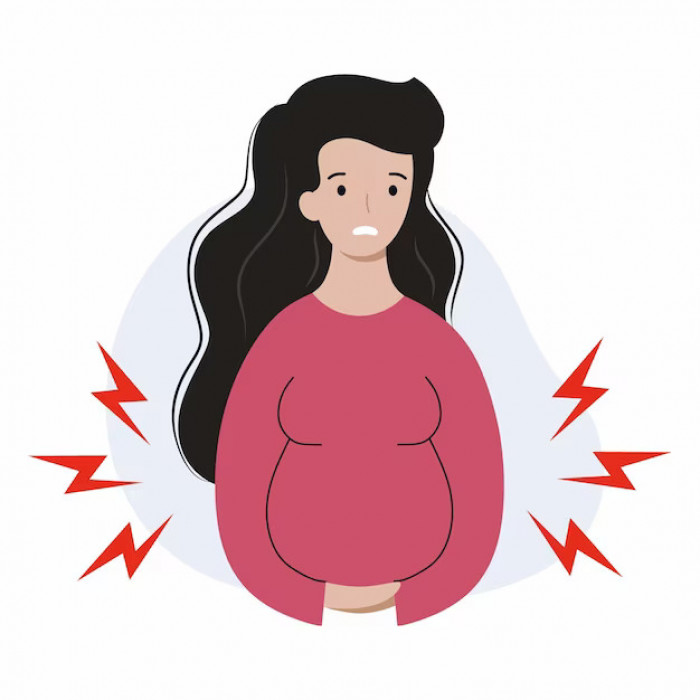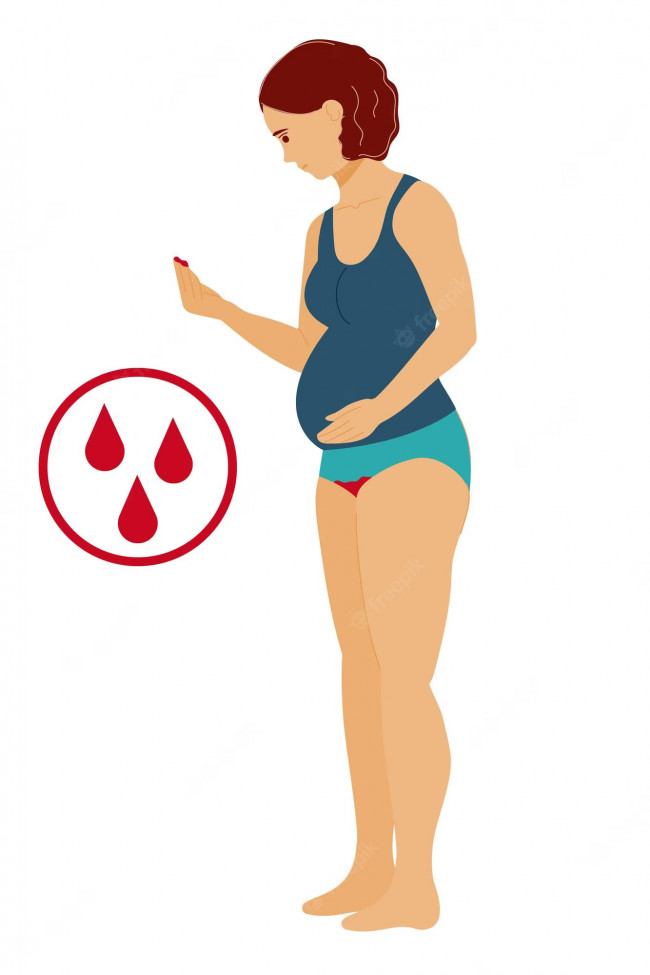
Chromosome abnormalities in the growing foetus are the main cause of miscarriage. Other factors that can contribute to miscarriage include hormonal imbalances, infections, maternal age, and chronic illnesses such as diabetes and thyroid disease.
Impact of Miscarriage on the Physical Health of the Mother:
Miscarriage can have a range of physical impacts on the mother's body, depending on the stage of the pregnancy and the cause of the miscarriage. Some women may experience symptoms such as bleeding, cramping, and pain. In some cases, a procedure called a dilation and curettage (D&C) may be necessary to remove any remaining tissue from the uterus. Other physical symptoms that women may experience after a miscarriage include:
1. Fatigue: Miscarriage can be emotionally and physically exhausting, and many women may experience feelings of tiredness and fatigue.
2. Hormonal changes: Pregnancy causes significant hormonal changes in the body, and these changes can take some time to return to normal after a miscarriage. Some women may experience mood swings, headaches, or other symptoms related to hormonal changes.
3. Infection: In some cases, a miscarriage can lead to an infection in the uterus. Symptoms of an infection can include fever, chills, and abdominal pain, and it is important to seek medical attention if these symptoms occur.
4. Irregular periods: After a miscarriage, it may take some time for a woman's menstrual cycle to return to normal. It is not uncommon for women to experience irregular periods or to have heavier or lighter bleeding than usual.
5. women problem : In some cases, the bleeding associated with a miscarriage can lead to , which is a condition characterized by a lack of red blood cells. can cause symptoms such as fatigue, weakness, and shortness of breath.
Impact of Miscarriage on the Mental Health of the Mother:
Miscarriage can have a profound impact on the mental health of the mother, and it is not uncommon for women to experience a range of emotions in the aftermath of a miscarriage. Some women may feel a sense of shock or disbelief, while others may experience intense sadness, grief, anger, guilt, or depression. The emotional impact of a miscarriage can be complex and can vary depending on the individual may circumstances of the pregnancy, as well as the woman's personal beliefs and coping mechanisms.
One of the most common emotional responses to miscarriage is grief. Women who have experienced a miscarriage may grieve the loss of the pregnancy, the hopes and dreams they had for their future child, and the sense of identity and purpose that may have been tied up in the idea of motherhood. Grief can manifest in different ways, and some women may experience intense feelings of sadness, anxiety, or loneliness. They may also experience physical symptoms such as insomnia, fatigue, or changes in appetite.
Another common emotional response to miscarriage is guilt. Women may blame themselves for the loss of the pregnancy, even though in most cases, there is nothing that they could have done to prevent it. Guilt can be especially common if a woman has engaged in activities that are often stigmatized during pregnancy, such as smoking or drinking alcohol. These feelings of guilt can be difficult to manage and may exacerbate other feelings of sadness or grief.
Depression is another potential consequence of miscarriage. Women who have experienced a miscarriage may be at an increased risk of developing depression, which can be characterized by feelings of hopelessness, sadness, and a loss of interest in activities that were once enjoyable. Depression can be a serious condition, and it is important for women to seek help if they experience symptoms such as persistent sadness or loss of interest in life.
In addition to these emotional responses, women may also experience a range of physical symptoms related to their mental health. For example, they may have trouble sleeping, lose or gain weight, or experience physical pain related to anxiety or stress. It is important for women to take care of their mental health after a miscarriage, online counsellor which may involve seeking support from loved ones or mental health professionals, engaging in self-care activities, or joining a support group for women who have experienced a miscarriage.
Impact of Miscarriage on the Mental Health of the Father:
Miscarriage can also have a significant impact on the mental health of the father. Men may experience feelings of grief, guilt, and helplessness. They may also feel isolated and unsupported, as the focus of care and attention is often on the mother.
Impact of Miscarriage on the Relationship:
Miscarriage can have a significant impact on the relationship between partners. It can bring couples closer together, as they support each other through the grieving process. However, it can also cause tension and strain, as each partner may cope with their emotions differently. It is important for couples to communicate openly and honestly with each other and to seek support from a counselor or therapist if needed.
Different Ways to Cope with Miscarriage:
There are several ways that couples can cope with the emotional impact of miscarriage. These include:
1. Seeking support from family and friends: Talking to loved ones can help couples feel less alone and isolated.
2. Joining a support group: There are many support groups for couples who have experienced miscarriage. These groups can provide a safe and supportive environment for couples to share their experiences and feelings.
3. Seeing a counselor or therapist: A counselor or therapist can provide support and guidance to couples as they navigate the emotional aftermath of miscarriage.
4. Online counseling: Online counseling is becoming increasingly popular and can be a convenient and accessible way for couples to seek support.
Conclusion:
Miscarriage is a common occurrence that can have a significant impact on the physical and mental health of both partners. It is important for couples to seek support and to communicate openly and honestly with each other. Online counseling is one way that couples can access support in a convenient and accessible way. With the right support and coping strategies, couples can work through the emotional aftermath of miscarriage and move forward with hope and resilience.
















